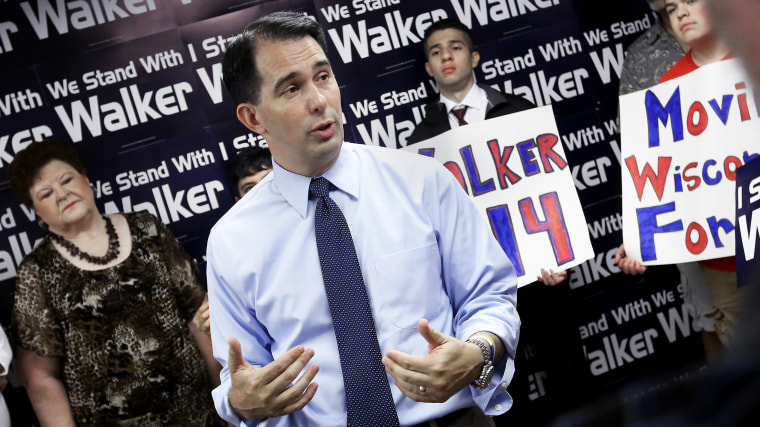In just about every midterm election cycle, candidates eyeing a presidential campaign down the road have a decision to make: do they commit to serving a full term or not? Candidates who do make that promise effectively remove themselves from national contention -- they're declaring their intentions for the next several years, which won't include a run for the White House.
But candidates who choose not to make that commitment -- tipping their hand about their presidential plans -- run the risk of annoying voters. They're left in a position in which they're essentially telling the public, "I want you to elect me to this office, though if I win, I might soon after run for some different office."
New Jersey Gov. Chris Christie (R) was pretty upfront about his intentions during his re-election bid last year, refusing to commit to a full, four-year term. Plenty of other likely GOP hopefuls -- Cruz, Paul, Jindal, Rubio, Santorum, Jeb Bush -- aren't running for anything this year, and don't have to worry about this at all.
But then there's Wisconsin Gov. Scott Walker (R), who's made no secret of his national aspirations, even in the midst of a tough re-election fight. Will the Republican governor promise voters to serve all four years if he prevails in November? It's apparently more complicated than it should be. Here's what the Green Bay Press Gazette reported last week:
While Gov. Scott Walker lays out plans for a second term in Madison, he will not promise to serve the entire four years if the 2016 national elections beckon.... [A]mid widespread speculation that he could soon become a candidate for national office, the governor told reporters later he would not make any promises about completing a second term if re-elected. "I've never made a time commitment anywhere I've been in office," he said. "I've always made promises about what I would do and how I would do it. I'm not going to change now."
That's a perfectly fair position, but it's not what he told msnbc's Kasie Hunt, who asked the governor, "Are you committed to serving a full second term?" Walker replied, "That's my plan."
It is?
To be sure, Walker's in a tough spot. If he loses this year, his presidential plans are almost certainly over, and given recent polls, defeat remains a real possibility. The governor's administration has been burdened by scandal, and Walker failed to deliver on the single most important promise from his 2010 race: the 250,000 jobs he said he'd create in his first term, before coming up far short.
For that matter, he's hardly the first statewide candidate to struggle with this.
But Walker doesn't help his case by hedging on his commitments. Over the course of a few days, the governor said he wouldn't commit to a full second term, and then soon after, said he plans to serve a full second term.
One of these isn't true.
